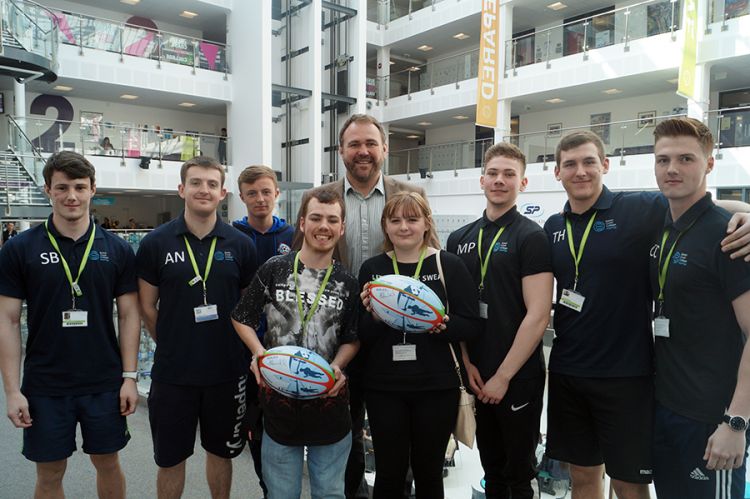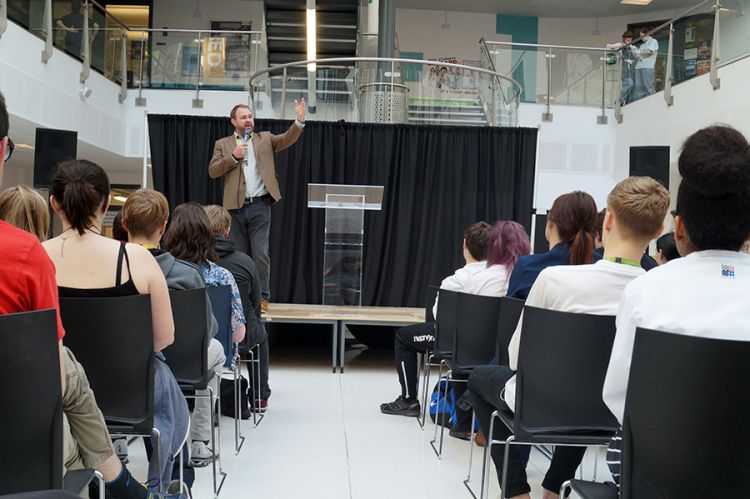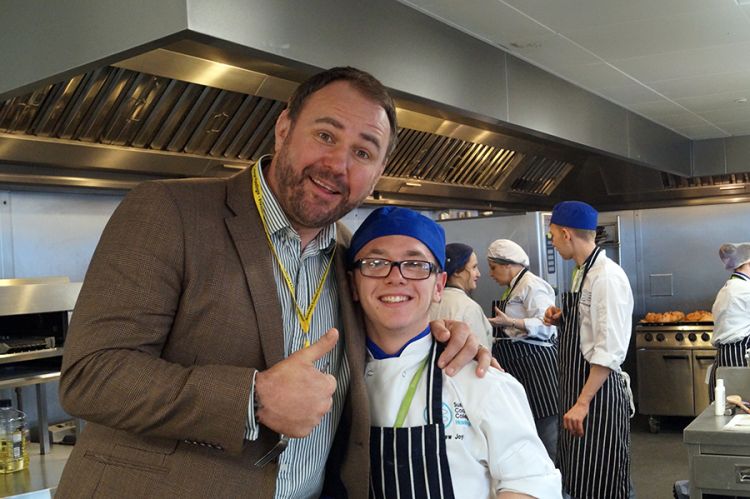Former Wales and British Lions Star Gives Motivational Talk About Dyslexia

Former international rugby star, Scott Quinnell visited Sussex Coast College earlier this week to inspire and motivate young people.
The former Scarletts and Wales International spoke in front of hundreds of students at the Station Plaza and Ore campuses about his illustrious playing career, how he realised the importance of setting goals, and how he overcame his difficulties with dyslexia.
Scott had to wait until he was 32 to be diagnosed with dyslexia, and during his speech, explained his struggles with reading, writing and spelling in his younger years.
Scott found his passion in rugby and told students about his dream of playing for the British and Irish Lions during their tour of Australia in 2001, before he finished his career. He was very honest about his lowest moment of dyslexia and explained how he overcame his obstacles and decided to not let dyslexia hold him back any longer.

Scott Quinnell said: “When I was at school, I was told that I was thick, stupid and lazy. I didn’t know that I had dyslexia. It made me want to hide away at the back of the class, hoping that the teacher wouldn’t notice me. Rugby was the only thing that kept me going. It was the reason that I woke up in the morning with a smile on my face. Luckily enough, I was quite good and was able to make a career out of it.”
“Self-esteem is very important in anything you do, and trying your best is all anyone can ask of you. My dyslexia was confirmed when I was 32, and I’ve not let it hold me back since.”
Since finishing his playing career, Scott has written a quick read book, regularly commentates for Sky Sports, started a scented candle business and has taken up pottery.
After his talks, students had the opportunity to meet and talk to Scott as he visited a number of classrooms at Station Plaza and Ore, including the carpentry workshop, the gym, and the coast restaurant.
 Students, Connor Brown and Charley-Louise Burlace were invited to join Scott for lunch in the college restaurant, where he asked them about their goals and ambitions, before presenting them with a signed rugby ball to celebrate their achievements at college.
Students, Connor Brown and Charley-Louise Burlace were invited to join Scott for lunch in the college restaurant, where he asked them about their goals and ambitions, before presenting them with a signed rugby ball to celebrate their achievements at college.
Scott’s visit and motivational talk helped to demonstrate the commitment the college has to students with dyslexia. Dyslexia is a common learning difficulty that is estimated to affect 1 in 10 people in the UK.
Last year, the college was awarded the Dyslexia quality mark for their excellent standards and support they offer to students with dyslexia, one of the only colleges in East Sussex to be awarded the accreditation.











Responses